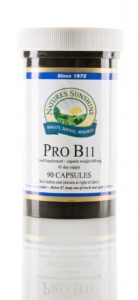A visit to the supermarket these days can feel more like walking through a pharmacy, with an ever-expanding range of milks, yoghurts, pills, powders and speciality foods promoting their “probiotic” prowess.
Advocates of probiotics have hailed them as the answer to all sorts of health issues and conditions. But what exactly are probiotics? And, more importantly, should you be taking them?
Read more:
What supplements do scientists use, and why?
What are probiotics?
Probiotics are scientifically defined as “live micro-organisms which, when administered in adequate amounts, confer a health benefit on the host”. In simple terms, they’re “good” bacteria that are beneficial to the body.
Probiotics exist naturally in some foods (such as some types of yoghurt and fermented vegetables such as pickles and sauerkraut), but can also be taken in dietary supplement form, via products such as 
While our digestive system ordinarily contains trillions of microbes, including both “good” and “bad” bacteria, sometimes the balance between these can get out of whack. Diseases, poor lifestyle behaviours (such as not eating enough fruit and vegetables, heavy drinking, smoking, and physical inactivity) and ageing can all disrupt this balance.
Are they good for us?
By many accounts, probiotics can improve the number and diversity of “good” gut bacteria that help to keep our digestive system healthy and working efficiently. As such, probiotics have been proposed to:
- reduce symptoms associated with gastrointestinal disorders such as constipation, diarrhoea and irritable bowel syndrome
- boost immune health
- improve blood cholesterol levels
- reduce blood pressure
- improve blood glucose tolerance and diabetes control.
However, most scientific research on the health benefits of probiotic supplementation seems to have been done in people with existing health problems. Evidence supporting the health benefits of probiotics in healthy adults is very limited. Probiotic supplements are most likely to be consumed by the general (and otherwise healthy) population, despite this group receiving the relatively little documented benefit.
Read more:
Poo transplants and probiotics – does anything work to improve the health of our gut?
New research on probiotics
We reviewed the scientific literature (45 original studies) on probiotic supplementation in healthy adults. Our findings, published in the European Journal of Clinical Nutrition, found that giving healthy adults live bacteria (either in yoghurt, capsules, or drinks) can have a few benefits:
1) it can increase the concentration of “good” bacteria. So, if an imbalance of digestive system bacteria does occur in healthy adults (due to poor lifestyle, the use of antibiotics, or ageing), probiotic supplementation may help restore the balance


